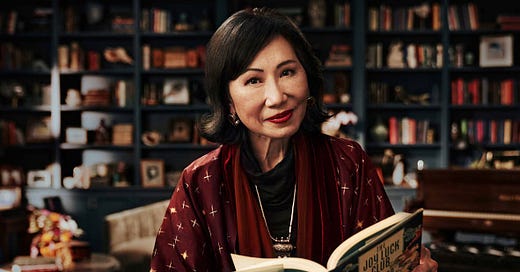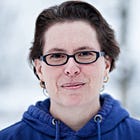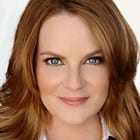Amy Tan was “born in the US to immigrant parents from China. She failed her mother’s expectations that she become a doctor and concert pianist. She settled on writing fiction. Her novels are The Joy Luck Club, The Kitchen God's Wife, The Hundred Secret Senses, The Bonesetter's Daughter, and Saving Fish from Drowning, all New York Times bestsellers and the recipient of various awards.”
From bio on her official site amytan.net.
"There are many people who misunderstand what fiction is. They'll say, 'Fiction is a bunch of lies.' I would say fiction is actually one of the best ways for finding truth."
[From video below about her MasterClass.]
~~~
Some of her comments from TED presentation: Amy Tan: Where does creativity hide?:
My creative process… includes a number of things that happened…And includes nature, and nurture, and what I refer to as nightmares.
Now in the nature area, we look at whether or not we are innately equipped with something, perhaps in our brains, some abnormal chromosome that causes this muse-like effect.
And some people would say that we’re born with it in some other means. And others, like my mother, would say that I get my material from past lives.
Some people would also say that creativity may be a function of some other neurological quirk — van Gogh syndrome — that you have a little bit of, you know, psychosis, or depression.
~~~
Amy Tan Teaches Fiction, Memory, and Imagination - see the MasterClass page.
"Amy Tan was 33 before she first explored her voice as a fiction author. A few years later, her debut novel, The Joy Luck Club, spent 40 weeks on The New York Times bestseller list. Now she’s showing you her approach to the challenges and joy of self-discovery through writing. Learn how to craft compelling beginnings and endings, find your voice, and embrace your emotional memory to bring powerful narratives to life."
The Writing section of MasterClass includes teachers on Screenplays, Novels & Short Stories, Poetry, and Non-fiction & Journalism.
~ ~ ~ ~
In a 1995 Salon magazine interview, she made a number of other interesting comments about inspiration and emotional health as a writer. Some excerpts:
SALON magazine: Have you felt the need to be a role model ever since the success of your first book, "The Joy Luck Club," in 1989?
AMY TAN: I don't feel the need to be a role model, it's just something that's been thrust upon me. Teachers and a lot of Asian-American organizations, for example, say to me, "We need you to come and speak to us because you're a role model."
SALON magazine: Are you comfortable with that?
AMY TAN: No.
Placing on writers the responsibility to represent a culture is an onerous burden. Someone who writes fiction is not necessarily writing a depiction of any generalized group, they're writing a very specific story.
There's also a danger in balkanizing literature, as if it should be read as sociology, or politics, or that it should answer questions like, "What does The Hundred Secret Senses have to teach us about Chinese culture?" As opposed to treating it as literature -- as a story, language, memory.
Tan also talked about her mental health challenges:
SALON: You have a very optimistic way of looking at life and death. But these concerns have also been a cause for deep distress in your life, including bouts with serious depression.
AMY TAN: Some of it is probably biochemical, but I think it's also in my family tree. I mean, my grandmother killed herself; she certainly had depression in her life.
And anyone, like my mother, who witnessed her own mother killing herself, is going to be prone to the same disease. My own father died of a brain tumor when I was 14. My brother died of the same disease.
I didn't do anything about it for a long time, because, like many people, I worried about altering my psyche with drugs.
As a writer, I was especially concerned with that. A lot of writers believe that the trauma and the angst that you feel is an essential part of the craft.
And depression is still not respectable -- especially taking medication for it.
People look at me as this very, I don't know, Confucius-like wise person -- which I'm not. They don't see all the shit that I've been through (laughs). And going back to the question of being a role model, well, my life hasn't been perfect. I needed help.
SALON: What do you take?
Zoloft. I don't think it's made me a Pollyanna. I can still get angry and upset, but I don't fall into the abyss. I'm grateful that I have some traction now. It doesn't change essentially who you are, but it fixes things just the way insulin does for people with diabetes.
From The SALON Interview: Amy Tan (1995).
~~~~
A few related posts of mine, here on Substack:
List of posts on Writers and writing
…
…
…
~~~~~~~








